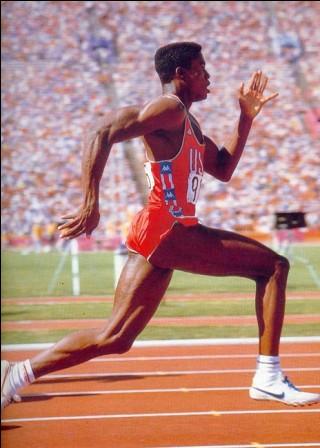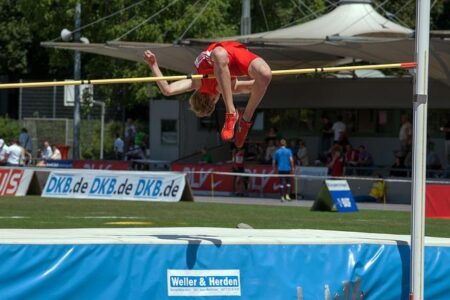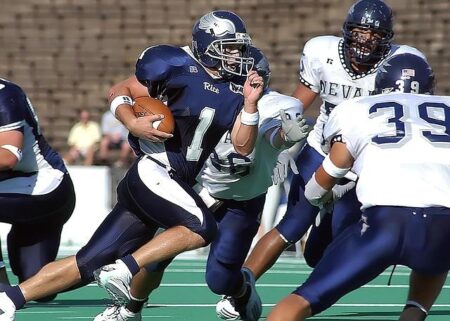Legendary Long Jumper Carl Lewis Critiques world Athletics’ Proposed Changes
In a provocative statement that has ignited significant discussion within the athletics community, iconic long jumper Carl lewis has dismissed World Athletics’ suggested sweeping modifications to the long jump as little more than an elaborate prank. The former Olympic champion expressed his doubts regarding the organization’s latest initiative aimed at overhauling the traditional long jump format.As conversations about this proposal intensify, lewis’s remarks highlight broader implications for both the sport and its athletes. This article explores the contentious proposal and analyzes reactions from athletes, officials, and fans alike.
Carl Lewis Voices Concerns Over World Athletics’ Proposal
Carl Lewis, a celebrated figure in Olympic history, has voiced strong opposition to World Athletics’ proposed alterations to the long jump competition structure. In a recent commentary, he criticized these suggestions as not only impractical but also disrespectful to the sport’s rich heritage. The proposed changes represent a significant departure from established norms that manny enthusiasts believe could compromise the integrity of competitive jumping. Lewis even likened these ideas to an April Fools’ joke, indicating that such bizarre proposals might confuse both fans and participants.
The legendary athlete emphasized that long jump boasts a storied past deserving of respect and preservation. He underscored how crucial it is to maintain core elements defining this event while arguing that any modifications should enhance rather than detract from its competitive essence. Key points raised by lewis include:
- Respecting Tradition: Emphasizing honoring the legacy of athletics.
- Engaging Fans: Considering how changes affect spectators’ understanding and enjoyment of events.
- Athlete Safety: Ensuring any revisions prioritize competitors’ well-being and performance capabilities.
The Broader Impact of Proposed Changes on Track & Field Events
Carl Lewis’s critique draws attention to potential ramifications stemming from radical changes suggested by World Athletics—prompting extensive dialog within sports circles. These alterations aim for significant change in long jump formats by introducing elements some critics argue may dilute what makes this sport unique. As a nine-time Olympic gold medalist, Lewis is concerned these innovations could undermine traditional skills honed over decades in competitive jumping.
The consequences of such shifts extend beyond individual performances; they raise critical questions about track and field’s future direction overall. Key considerations include:
- Younger Audience Appeal: Will these adjustments attract new fans or alienate loyal supporters?
- Fair Competition: How will changes affect equity among athletes with varying skill levels?
- Preservation of History: Can track events retain their ancient meaning if formats are drastically altered?
This ongoing discourse necessitates careful evaluation regarding how revolutionary concepts might reshape not just specific events but also redefine track and field competitions as a whole.
Sustainable Enhancements for Traditional Athletics Without Sacrificing Integrity
The debate surrounding potential innovations in traditional athletics underscores an urgent need for exploring methods that can enhance sports while preserving their foundational integrity. key recommendations include:
- Pursuing Historical Respectfulness: New regulations should honor historical contexts ensuring performances are evaluated based on established standards.
- Athlete Involvement in Decision-Making: Including athletes in discussions can lead to improvements beneficial for competitors as well as fans alike.
- Introducing modifications incrementally allows thorough assessment regarding their impact on competition integrity alongside athlete safety concerns.
< li >< strong > Clear Interaction: Obvious dialogue about proposed adjustments fosters trust within athletic communities while upholding its ethos.
< p > Moreover,a structured approach could facilitate smoother transitions into new methodologies.A proposed framework might encompass:< / p >
Aspect Consideration < / tr >
< /thead >Type of Innovation Technical enhancements without altering core aspects of competition.< / td > < /tr >
< td style = " border : 1 px solid #ccc ; padding : 8 px " > Community Engagement < td style = " border : 1 px solid #ccc ; padding : 8 px " > Organize forums inviting discussions around potential changes involving athletes , coaches ,and fans.< / td > Monitoring Effects Regular evaluations assessing impacts on athlete performance along with dynamics during competitions .< / td > < /tbody >
Final Thoughts on Proposed Changes in Long Jump Events
Carl Lewis’s analogy comparing World athletics’ unconventional proposal concerning long jumps with an April Fools’ joke encapsulates skepticism surrounding innovative ideas within competitive sports today.As stakeholders navigate balancing tradition against progress,the responses from experienced figures like him emphasize thoughtful consideration before implementing drastic reforms.As dialogues continue around this radical approach,it remains uncertain how governing bodies will address complexities inherent in reform efforts while safeguarding sporting integrity.The conversation sparked by comments made byLewis servesasavital reminderofthenecessityforstakeholderinputasathleticsadaptsinanevolvinglandscape.





